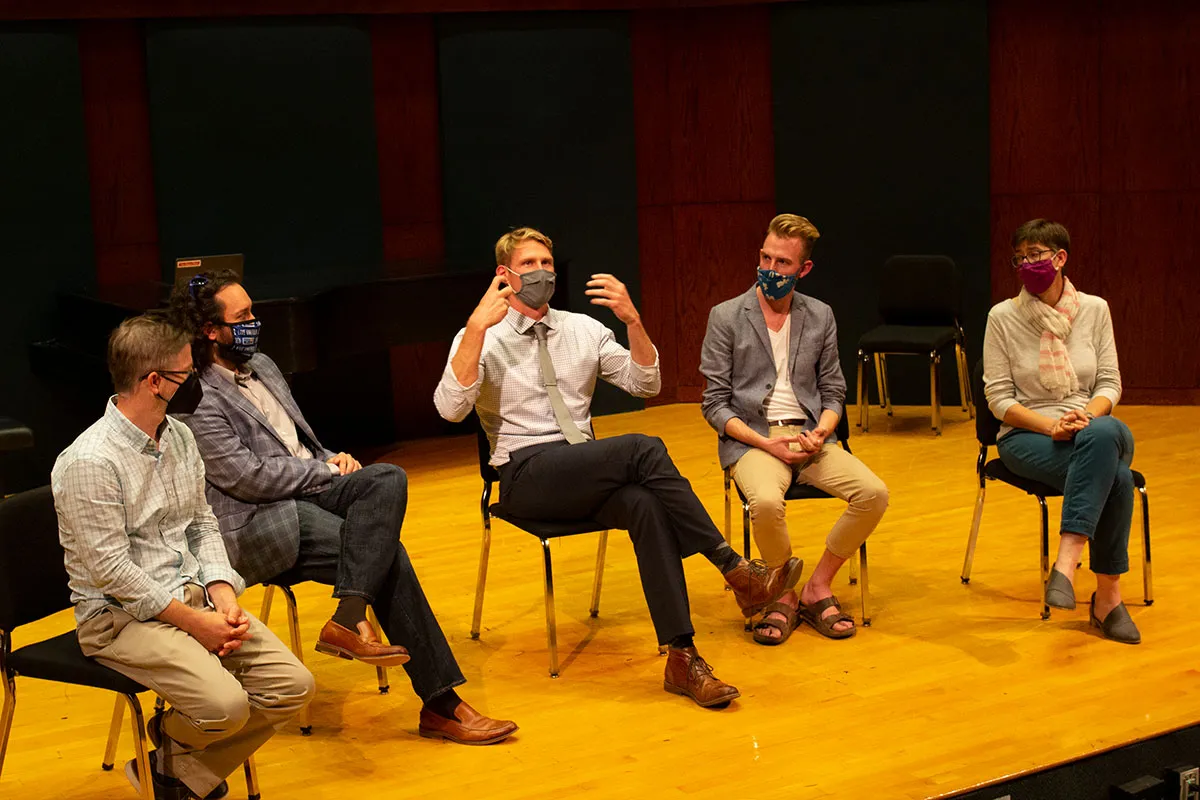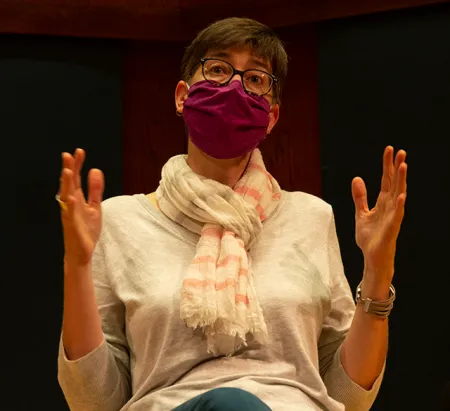The Ithaca College School of Music is one of the most highly regarded in the country, so it’s no surprise that its students spend long hours practicing and honing their craft.
However, hard work and dedication shouldn’t mean sacrificing one’s mental health or well-being. That’s why a group of music majors have come together to form the Mental Health Awareness for Musicians Association (MHAMA), with the goal of focusing on their mental health while still finding ways to nurture their shared love for music.
On September 15, MHAMA hosted a panel discussion, organized by music education major Mahum Qureshi ’23, centered on the ways in which mental health relates to pedagogical policy and the prestigiousness of the school’s culture.

